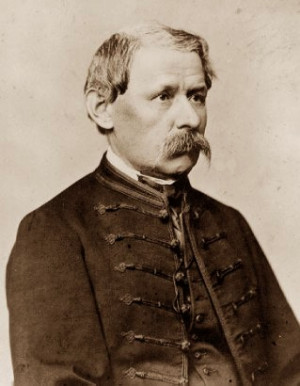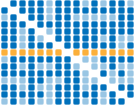Arany János: The bards of Wales' (A walesi bárdok in English)
A walesi bárdok (Hungarian)Edward király, angol király Van-e ott folyó és földje jó? S a nép, az istenadta nép, Felség! valóban koronád S a nép, az istenadta nép Edward király, angol király Montgomery a vár neve, Vadat és halat, s mi jó falat S mind, amiket e szép sziget Ti urak, ti urak! hát senki sem Vadat és halat, s mi az ég alatt Ti urak, ti urak, hitvány ebek! Egymásra néz a sok vitéz, Szó bennszakad, hang fennakad, Itt van, király, ki tetteidet "Fegyver csörög, haló hörög, Levágva népünk ezrei, Máglyára! el! igen kemény - "Ah! lágyan kél az esti szél Ne szülj rabot, te szűz! anya De vakmerőn s hívatlanul "Elhullt csatában a derék - Emléke sír a lanton még - Meglátom én! - S parancsot ád Szolgái szét száguldanak, S Edward király, angol király Ötszáz, bizony, dalolva ment Ha, ha! mi zúg?... mi éji dal Áll néma csend; légy szárnya bent, Ha, ha! elő síp, dob, zene! De túl zenén, túl síp-dobon, 1857 (*) A történelem kétségbe vonja, de a mondában erősen tartja magát, hogy I. Eduárd angol király, Wales tartomány meghódítása (1277) után, ötszáz walesi bárdot végeztetett ki, hogy nemzetök dicső múltját zöngve, a fiakat föl ne gerjeszthessék az angol járom lerázására. A.J.
|
The bards of Wales' (English)King Edward scales the hills of Wales "Show me the yield of every field, "And are the Welsh, God's gift, the Welsh, "Sire, this jewel in your crown, "And, Sire, the Welsh, God's gift, the Welsh, King Edward scales the hills of Wales He calls at high Montgomery With fish, the meat, and fruit so sweet, The waiters file with the best this Isle "Now drink my health, you gentle sirs, "The fish, the meat you served to eat "Well, then, you sirs, you filthy curs, They look askance with a furtive glance, Deep silence falls upon the halls, "I shall recite your glorious deeds "Grim death rattles, the brave battles, "Our dead are plenty as the corn "Off to the stake!" the king commands, "A breeze so soft, does sweetly waft "Maiden, don't bear a slave! Mother, But boldly and without a call "Our brave were killed, just as you willed, "He may gone,' but his songs live on - "I'll see to that!" thunders the King, His men went forth to search the North, King Edward fled, headlong he sped Five hundred went singing to die, "My chamberlain, what is the din Gone is the din; without, within "Let drum and fife now come to life But over drums and piercing fifes,
(*)Although doubted by scholars, it is strongly held in the oral tradition that King Edward I of England had five hundred bards executed after his conquest of Wales in 1277, lest they incite the Welsh youth to rebellion by reminding them in their songs of their nation's glorious past. Janos Arany. Arany wrote this poem when the Austrian Emperor Franz Joseph first visited Hungary after he defeated it in its 1848-49 War of Independence. Originally he was asked to write a poem to praise the Emperor.
|
||||||





